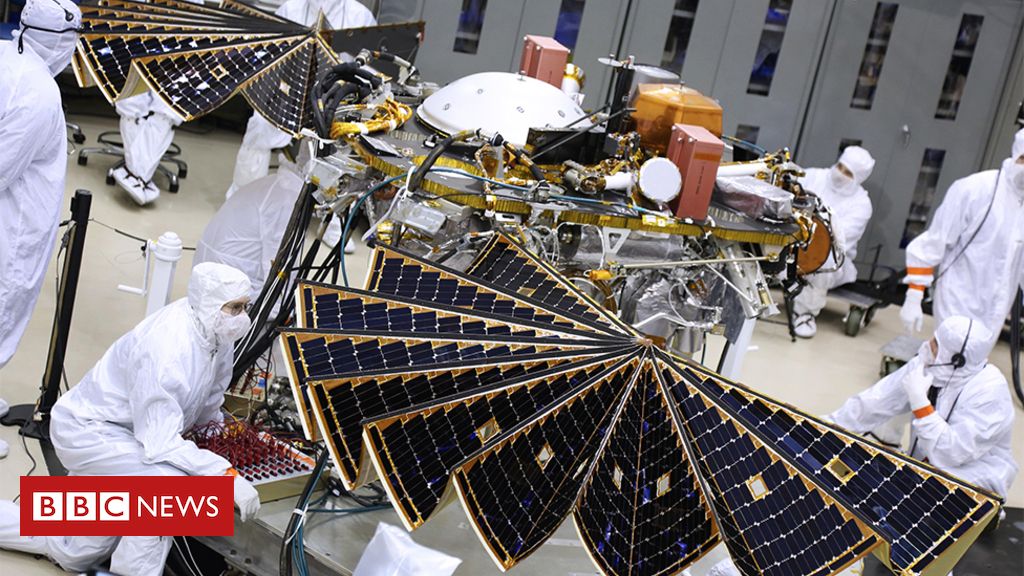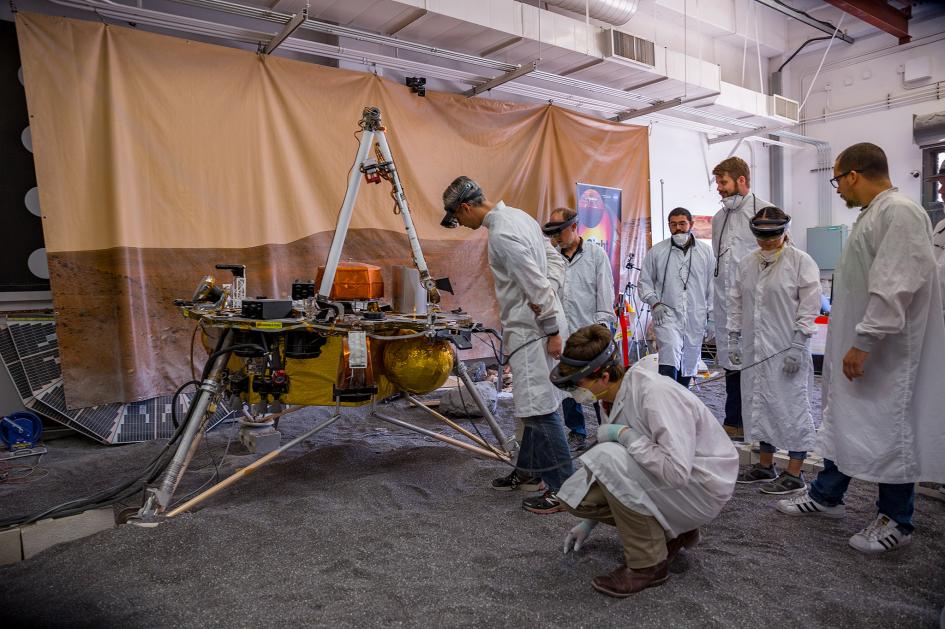NASA’s latest probe is carrying super-sensitive UK seismometers to the Red Planet.


INCREDIBLE time-lapse video of a rocket launching a resupply ship to the International Space Station… as seen from ISS itself!

Mars is lacking in the vast supply of natural resources we’ve come to rely on here on Earth, and astronauts attempting to colonize, or even just visit, the red planet can only bring a limited supply of materials with them. Learning to make do with what Mars has to offer is one of the biggest challenges of visiting our nearest neighbor, but the results of the European Space Agency’s latest 3D-printing experiments prove it isn’t impossible.
We’ve sent probes and rovers to Mars, but to date it’s only been a one-way trip. Our knowledge of what Mars is made from is limited to what Spirit and Opportunity can learn from samples, and studying Martian meteorites that have made their way to Earth. Like our moon, if there’s one thing Mars isn’t lacking, it’s dust. So as a stand in for genuine Mars ingredients, researchers have turned to a simulated version of lunar soil, also known as lunar regolith.

THE International Space Station is infested with mysterious space bugs that may be leaving astronauts at risk of ‘serious harm’, according to a new study.
Scientists discovered a thriving ecosystem of “infectious organisms” aboard the station which are similar to bugs found in hospitals on Earth.
A NASA team found five different varieties of Enterobacter, with researchers calculating that there is a “79% probability that they may potentially cause disease”.
In this episode of #EarthfromSpace, the Copernicus Sentinel-3A satellite takes us over the Gulf from the ESA Web TV studios.
Download the image: http://www.esa.int/spaceinimages/Imag…
★ Subscribe: http://bit.ly/ESAsubscribe
Check out our full video catalog: http://bit.ly/SpaceInVideos
Follow ESA on Twitter: http://bit.ly/ESAonTwitter
On Facebook: http://bit.ly/ESAonFacebook
On Instagram: http://bit.ly/ESAonInstagram
On Flickr: http://bit.ly/ESAonFlickr
ESA is Europe’s gateway to space. Our mission is to shape the development of Europe’s space capability and ensure that investment in space continues to deliver benefits to the citizens of Europe and the world. Check out http://www.esa.int/ESA to get up to speed on everything space related.
Copyright information about our videos is available here: http://www.esa.int/spaceinvideos/Term…
Join crew members Alexander Gerst and Serena Auñón-Chancellor as they get ready for #Thanksgiving aboard the International Space Station with poundcake and candied yams. Watch: https://go.nasa.gov/2qZt4LY

No, we’re not talking about the #Thanksgiving day games, but rather our Mars InSight lander mission is on course for a touchdown with a #MarsLanding on Monday, Nov. 26. Learn about how the mission is on track to make this touchdown: https://go.nasa.gov/2qZDdZ2


Researchers fly the first atmospheric aircraft to use space-proven ionic thrust technology.
